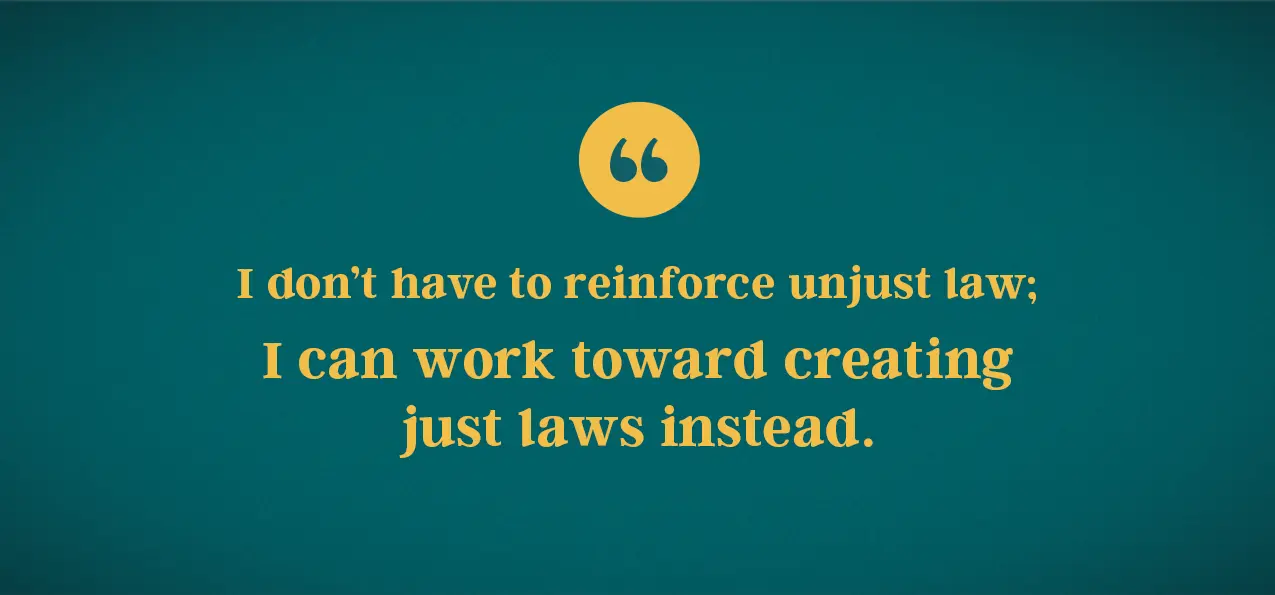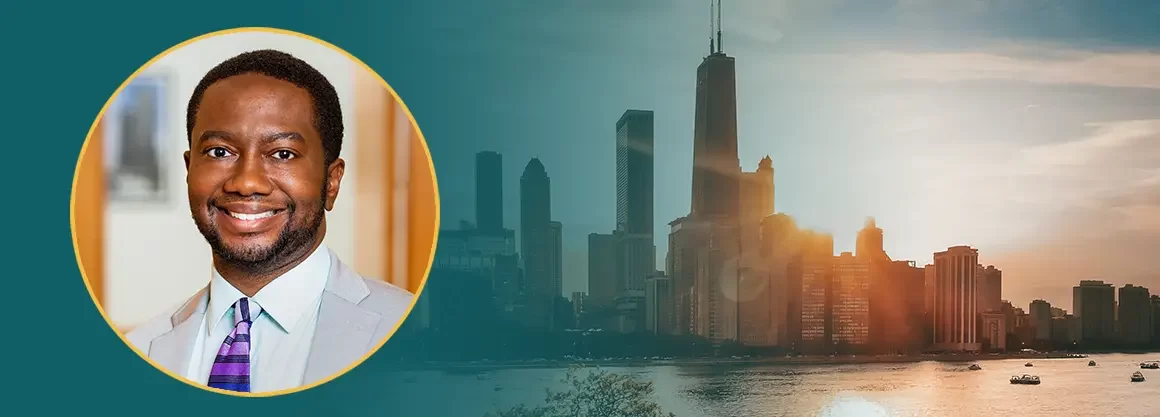At Prather Ebner Wilson, we pride ourselves on being resourceful, collaborative, trustworthy partners to our clients and the legal community. Those values extend to every member of our team, including paralegal Gabriel V. Evelyn.
Gabriel celebrates his third year with the firm in August. He’s the first face clients see when they walk through our door, and brings so much to the table every day, from his passion for life to his unique perspective on the law.
“There’s always something new to learn,” Gabriel says. “Always a new challenge, a new concept to research, exploring how to apply different practices and concepts from one case to a new one with another set of circumstances.”
Gabriel is a first-generation Panamanian-American. His experience as a Black, Latinx, queer and cisgender man working in the legal profession both informs his career and inspires his journey of self-exploration.
In April, Gabriel presented a session at InfoTrack US’s Legal Up 2023 Virtual Conference called “Black by the Book: My Blackness, the Law, & the Legal Field” delving into both legal history and his personal experience. Below, we’ll explore the presentation, as well as Gabriel’s advice to audience members.
“Black by the Book: My Blackness, the Law, & the Legal Field”
Gabriel chose this title for his presentation for three reasons.
- Firstly, “by the book,” a phrase that typically describes a strict adherence to the rules, also refers to the rules American society proscribes onto Black people.
- Next, “throw the book,” or punishing a person as severely as possible, also refers to the disproportionately harsh punishment of Black people under the law.
- Finally, “uphold the law(book).” Legal professionals are expected to uphold the “book” of law, which has been written to deny justice to Black people.
This final bullet speaks to the heart of Gabriel’s dilemma; he is both Black and a member of the political system that criminalizes fellow Black people. He asks: “Is my participation in the legal system somehow contradictory to my identity as a Black man?”
Systemic Racism by the Book
Gabriel’s presentation then explores a brief history of racism in the American justice system, starting with 1600s colonial “night watches,” all-white “slave patrols” in the 1700s and the emergence of the KKK in the 1800s. After the Civil War, Black Codes forced labor on Black people, prevented them from testifying against white people in court and overall “threw the book” at them for lesser crimes.
Even in a post-Civil Rights Act era, racism in and by the law persists. Police brutality against people like Rodney King, George Floyd, Breonna Taylor, and countless others has captured headlines, and racist laws and procedures mean “the book” is still applied differently to Black people. “The perception of Blackness as inferior affects my existence on a daily basis,” Gabriel says.
Blackness and the Book
Gabriel’s Blackness announces him as “Other” in the eyes of the U.S. legal system — and among his legal colleagues. “I have felt an internalized pressure to represent my community in these spaces, and to measure my verbal and nonverbal language compared to others,” he says.
This “Other”-ness also gives him an outsider’s perspective on the law’s intricacies and interpretations. Gabriel’s assessment is more likely to diverge from the status quo due to nuances of his existence, and he sees what the law and U.S. legal system could become if truly based in equality for all people.
“Working within the legal system grants me and many other Black individuals the ability to build toward effecting long-lasting, positive change,” he says. “I don’t have to reinforce unjust law; I can work toward creating just laws instead.”

Reaction and results
Gabriel says his LegalUp presentation was met with questions about how law firms can improve the experience of Black people in their firms and be more personally inclusive and aware. “It’s just about making space for individuals who didn’t have a seat at the table and hearing with the intent to listen rather than hearing with the intent to respond,” he says. “The former comes from a place of empathy, understanding, and awareness of other people’s unique lived experiences. The latter is defensive and diminishes the experience of others.”
What about his advice for non-white people who are interested in the legal profession? “If you’re passionate about the law, still persevere,” he says.
“There will always be struggle and strife — in the U.S., it’s tougher to simply exist with melanin in the first place. But you can always create your own space and your own change.”
How Gabriel works toward lasting, positive change
The Chicago Paralegal Association, where Gabriel serves as director-at-large and pro bono coordinator, is one of those safe spaces in the legal community. The brainchild of paralegals Tisha Delgado and Tom Stephenson, the Association officially opened its doors to membership in April 2020.
Today, the group holds about 150 members, who access networking events, education opportunities and business savings within a supportive community. “Along with my fellow board members, I help create those safe spaces for people to be exactly who they are,” Gabriel says.
In the long term, Gabriel says, positive change requires us to recognize and unite around our commonalities. “We truly have a lot of similar struggles. Almost every group in this country, whether described by race, ethnicity, culture, gender identity, sexuality, religion, or folks who culturally look different from the mainstream white American, faces obstacles,” he says. “Create a support system of like-minded folks who can empathize with your issues. When your spirit is feeling down, they can keep you on course and remind you of who you are.”
Recommended reading
- “Black Codes & Pig Laws,” PBS
- “The Black Codes and Jim Crow Laws,” National Geographic
- “Black Codes – Definition, Dates & Jim Crow Laws,” History.com
- “Jim Crow Laws: Definition, Facts & Timeline,” History.com
- “The Invention of the Police,” Jill Lepore for The New Yorker
- “Created 150 Years Ago, the Justice Department’s First Mission Was to Protect Black Rights,” Smithsonian.com
- “The Origins of Modern-Day Policing,” NAACP
- “Racial Restriction and Housing Discrimination in the Chicagoland Area.” Digital Chicago – Lake Forest College

